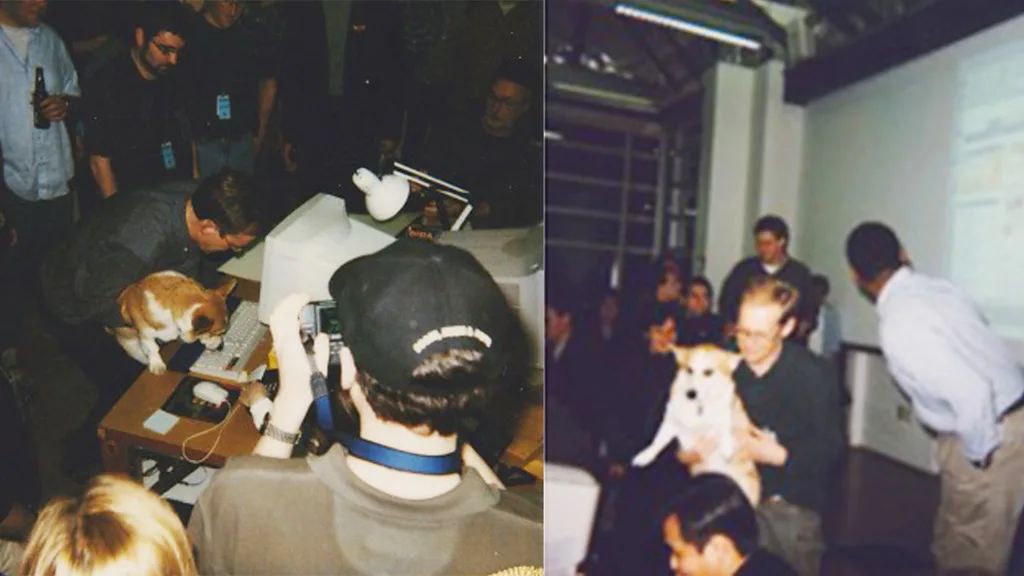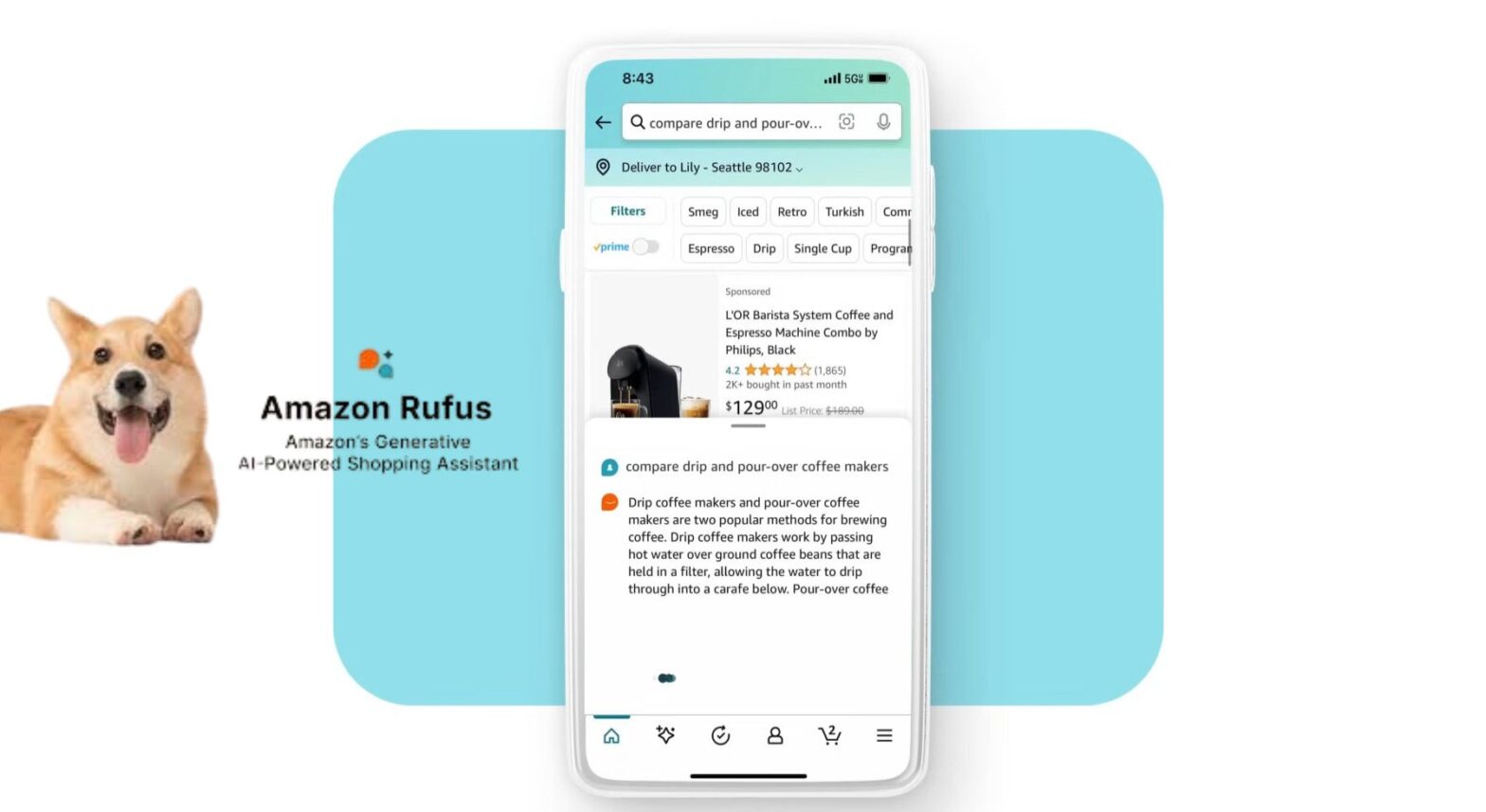Amazon recently introduced Rufus, a new AI shopping assistant, sparking curiosity about the unconventional naming approaches in tech. Named after Amazon’s first office dog, Rufus’s name adds a layer of personality that moves beyond typical AI names, reflecting a shift in how companies approach naming their digital assistants.
Amazon’s history with Rufus dates back to its early startup days in the mid-90s. Rufus, a Welsh corgi belonging to one of Amazon’s early engineers, became an icon within the company, roaming the halls and even “helping” with Amazon’s website. Rufus was so beloved that he appeared on Amazon’s error pages and inspired a dog-friendly culture at its Seattle headquarters, where a building is named after him. Rajiv Mehta, Amazon’s Vice President of Search and Conversational Shopping, stated that they “did extensive research” and found Rufus resonated with Amazon’s global customer base as a friendly, familiar name.

The decision to name an AI after a dog highlights a growing trend of giving digital assistants endearing or quirky names. Alexa, Amazon’s original AI assistant, was named after the ancient Library of Alexandria, projecting a sense of intelligence and historical significance. With Rufus, Amazon chose a name steeped in nostalgia and company culture rather than historical or mythological roots.
Amazon isn’t alone in experimenting with AI names. Google’s Gemini, previously called “Titan,” reflects the collaborative spirit between Google Research and DeepMind, symbolized by the Gemini zodiac sign. This change was influenced by Jeff Dean, a technical lead on the project, who disliked the initial “Titan” name and favored one that highlighted teamwork and duality. Apple’s Siri also draws from personal connections—its name is derived from a Norwegian word meaning “beautiful woman who leads to victory” and was inspired by the name of a colleague of its original creator, Dag Kittlaus, before Apple acquired it.

IBM’s Watson takes a more corporate route. Named after founder Thomas J. Watson, it aligns with the company’s legacy, positioning the assistant as a powerful, professional tool. However, playful names like Woebot (a mental health chatbot) and BARD (another Google project, short for “Bidirectional Encoder Representations from Transformers”) emphasize relatability and hint at specific functions. These names reflect the product’s personality and use case, appealing to users who seek an engaging, friendly interface.
The shift towards personal, quirky names may reflect tech companies’ desire to make AI more accessible and humanized. These names make AI seem less intimidating, encouraging more natural interactions with technology.
Although Rufus currently interacts through text and images rather than voice, its presence across platforms from the US to India represents Amazon’s investment in AI-powered shopping assistance. According to Mehta, Rufus has already responded to over 100 million product inquiries, reinforcing the practical applications behind the friendly name. While Alexa remains Amazon’s voice assistant, it’s unclear whether the two will ever integrate. For now, Rufus stands alone, bringing a touch of nostalgia to Amazon’s AI lineup.














